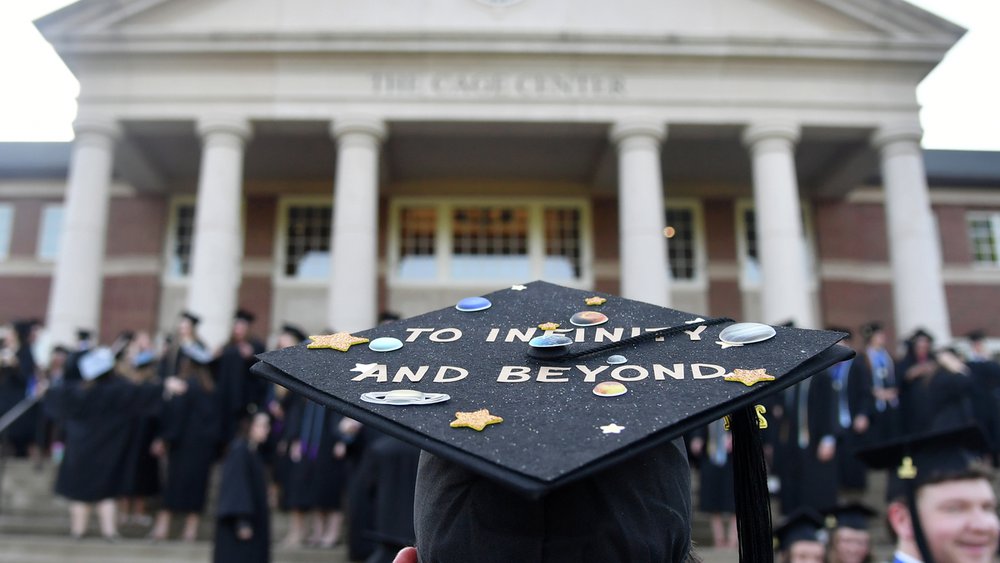
“We can successfully compete with the larger companies in the region, because we offer something different - we’re creative, you don’t have to wear sox. We’ve also been successful in moving people here.”
Robert Gadd, President and Chief Strategist, OnPoint Digital
World class talent chooses to live here. They come for the history, the beauty, the food, the arts, and the music. And they choose to stay. Entrepreneurial talent launches creative businesses and design studios. Senior technical and creative talent is recruited to work at Gulfstream Aerospace, the area hospitals, join as faculty at the Savannah College of Art and Design or become a part of the innovation center at Great Dane. Junior level talent is plentiful from our 18 colleges and universities.
Diversified and Growing Workforce
With a population of nearly one million within a 60-mile radius at a young median age, you’ll be within easy reach of talent that is both accessible and eager to work for you. More individuals are moving into than out of the region, which further bolsters the available workforce pool. And with hundreds of “heroes for hire” exiting area military bases each month, qualified individuals are continually infused into the talent pipeline.
Savannah has been ranked as one of the fastest growing cities by WalletHub in 2019, one of the “Top 50 Small Cities” by Resonance Consultancy and in 2019 Smart Asset named us the premier city for creatives professionals.
In recent years the entertainment production industry has grown and made an economic impact of $266 million in 2019. The Savannah Economic Development Authority (SEDA) is also actively growing and pursuing emerging creative/technology companies, to capitalize on the resource of the Savannah College of Art and Design and other regional industries.
- A regional workforce within 60 miles of 921,000
- Positive net migration of 24,000 with more than 25 percent being international in-migration
- A young, diverse workforce with a median age 36.5
Continuous Pipeline of Talent
With a very creative and specialized workforce, there is no doubt you will find the talent you need. The creative talent of SCAD students are infusing digital know-how and innovation to generate business solutions with companies such as Uber, NASA, Google, Delta Airlines, Coca-Cola and more. Or Georgia Southern University Computer Science students who are learning this generation’s coding and are the recent winners of the Center for Disease Control’s Games for Health competition.
In total, there are nearly 18 colleges and universities with 65,000 area colleges and university students at SCAD, Georgia Southern University, Savannah State University, Savannah Technical College and more. More than 7,000 students are majoring in technology related fields.
Nationally recognized universities include:
- Savannah College of Art and Design (SCAD) is continually recognized for educational and professional excellence, affirming their commitment to the highest standards of achievement in art and design. They have more than 40 programs including Animation, Design Management, Film and Television, Graphic Design, Immersive Reality, Industrial Design, Interactive Design and Game Development, Motion Media Design, Visual Effects and more.
- Georgia Southern University offers 141 degree programs at the bachelor’s, master’s and doctoral level and is a designated public Carnegie Doctoral/R2 institution. Those programs include Computer Engineering, Computer Science, Graphic Design, Cyber Security, Information Symptoms and Technology, Multimedia Film Production and more.
- Savannah State University is the oldest historically black college in Georgia and offers bachelor’s and master degree programs as well as an MBA in business administration. Their College of Sciences and Technology includes programs in computer science that offer course work and laboratory instruction designed to achieve the integration of academic theoretical knowledge with hands-on experience.
- Savannah Technical College offers technical education in nearly 150 different instructional programs in Aviation Technology, Business and Technology, Public Service, Industrial Technology, and Health Sciences in addition to Adult Education classes, industry-specific training and continuing education. Savannah Technical College is also home to the Georgia Film Academy.

The SCAD Factor
- First University to partner with Google to create a UX design degree program
- SCAD’s Game Design Program has the following awards:
- Best of E3 Student College Competition: 2013, 2014, 2016, Finalist: 2013-2016
- Intel University Game Showcase: 2016: 3rd Visual, 3rd Gameplay, 2017: 3rd Gameplay, 2019: Best in Innovation
- Ranked the #1 Best Online Game Design Degree Program by Intelligent.com
- Ranked #2 for Best Colleges for Game Design by College Magazine
- Ranked #4 for Production Excellence by the Rookies (the only North American school on the list)
- Ranked #15 for Best Game Design Schools by Animation Career Review

HOPE Scholarship: Tuition-Free College for Georgia's Brightest Students
Since the HOPE Scholarship's inception in 1993, the State of Georgia has awarded free pre-kindergarten programs and full college tuition waivers to top-performing students.
HOPE Scholarship & Zell Miller Grant: Georgia high school graduates earning a 3.0 GPA or higher are eligible for the HOPE Scholarship and/or Zell Miller Grant, which covers up to 100% of tuition at in-state public post-secondary institutions.

$17.6B
Scholarships & Grants Awarded
AJC, 2016

1.7M
Students Reached Since Inception
AJC, 2016

Learners to Earners
Savannah is fortunate to have an award-winning public school system that is large, diverse and neighborhood focused. Nationally recognized for innovative use of technology, Savannah-Chatham County Public School System has 23 elementary schools, 8 K-8, 8 middle schools, 11 public high schools and 5 charter schools. In addition, Savannah is home to nearly 40 top tier, award-winning private schools.
STEM Programs
Schools in Savannah offer unique STEM opportunities – from robotics competitions to math and science discovery programs – for students in each stage of their educational careers. Examples of impactful STEM programs outside of the traditional classroom setting that are unique to Savannah include:
- The STEM Academy at Bartlett was named the #1 middle school STEM program in the nation.
- Isle of Hope K-8 awarded First Place for Georgia STEM Education
- May Howard Elementary won 1st place at the 2019 regional Lego Robotics Competition.
- Isle of Hope K-8 School is a three time (2017, 2018, 2019) NASA student astronaut national champion.
- Woodville Tompkins High School is home to the only advanced industrial robotics certificate in Georgia and is home to high-tech labs with flight simulators. They have a 100 percent graduation rate.
- Jenkins High School’s school of engineering is STEM certified
- CEISMC, a STEM program through Georgia Tech
- Savannah State University STEM programs from K-12
- Georgia First Robotics is a statewide initiative that encourages young people to become science and technology leaders through engagement in mentor-based programs that build STEM skills to inspire innovation and foster well-rounded capabilities.

Other Notable Programs
- Coding as a Foreign Language: Computer science courses can satisfy high school students' foreign language graduation requirement.
- Dual Enrollment: Provides opportunities for Georgia high school students to take college-level courses and earn concurrent credit toward a high school diploma and a college degree.
- Georgia Dual Language Immersion Program: Enrolled students spend at least half of their school day learning in a target language and the other half in English at one of more than 40 schools across the region.
- Work-Based Learning: Combination of academic curriculum and work experiences with local private businesses and public entities.










